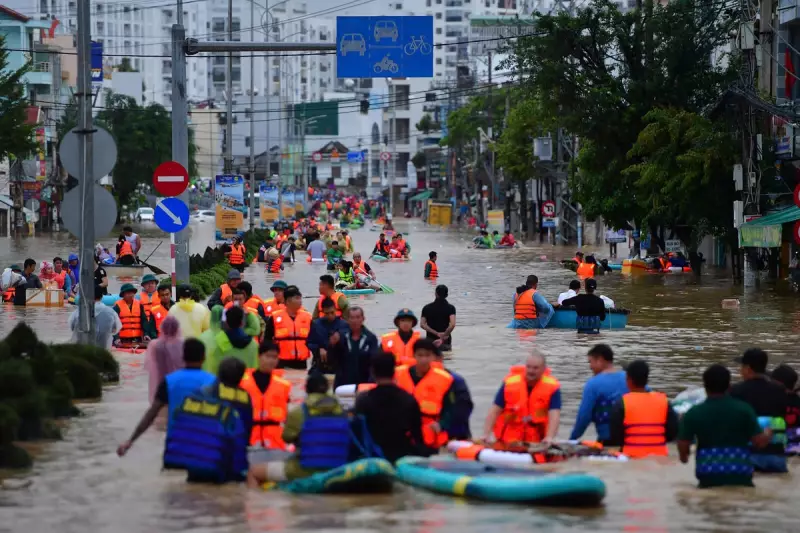
British travellers planning holidays to Vietnam are facing severe disruption as torrential rain and widespread flooding continue to batter the country's central regions. The extreme weather, linked to the aftermath of two typhoons, has submerged popular tourist destinations, triggered landslides, and led to significant evacuations.
Where is the flooding in Vietnam?
The severe weather has concentrated on Vietnam's central regions, a key area for both coffee production and tourism. The popular coastal cities of Hue, Hoi An, and Da Nang have been particularly hard hit, with homes, hotels, and streets left underwater. The situation has been developing since late October, worsened by typhoons Kalmaegi and Bualoi last month.
According to the Department of Dyke Management and Flood and Storm Control, the human cost is stark. The agency reports at least 90 people have died, with 12 more missing, following record-breaking rainfall this tropical storm season. The US embassy in Vietnam has also issued a flooding alert, noting that thousands of residents have been evacuated or isolated without access to power, food, water, or emergency services.
Are flights to Vietnam affected?
As of Monday morning, major international airports such as Tan Son Nhat in Ho Chi Minh City, Noi Bai in Hanoi, and Da Nang International Airport were operating as scheduled. However, travellers should anticipate potential delays, especially for internal flights.
The disruption was evident last week when Tuy Hoa Airport in Phu Yen province was forced to close for almost 14 hours on Thursday due to the adverse conditions. Vietnam’s meteorological agency has forecast further thunderstorms and a “possibility of tornadoes, lightning and strong gusts” for Da Nang, with heavy rain set to continue.
What is the latest UK Foreign Office advice?
The UK Foreign, Commonwealth & Development Office (FCDO) has not issued new travel warnings specifically for the flooding and has not advised against all but essential travel to Vietnam. This status is crucial for travellers seeking refunds or to make insurance claims.
A recent FCDO update does, however, caution that “the tropical storm season runs from May to November” and that “2025 has seen higher than expected rainfall in Vietnam.” They advise all travellers to monitor weather updates from the National Centre for Hydro-Meteorological Forecasting and the Japan Meteorological Agency, and to follow the instructions of local authorities.
The general FCDO guidance for extreme weather in Vietnam is clear: “be prepared to change your travel plans on short notice.”
Can I cancel my holiday to Vietnam?
Since the Foreign Office has not upgraded its travel advice to warn against non-essential travel, your rights to a full refund are limited. There are no special circumstances in place that automatically allow for cancellation without penalty.
Your ability to cancel or postpone will depend entirely on the terms and conditions of your holiday provider. It is essential to contact them directly if you are considering changing your plans.
Most travel insurance policies will not cover cancellation due to concerns about flooding or severe weather unless the FCDO changes its official advice. Some policies may include natural disaster cover for events that physically prevent you from reaching your destination, so it is vital to check your policy wording carefully.





